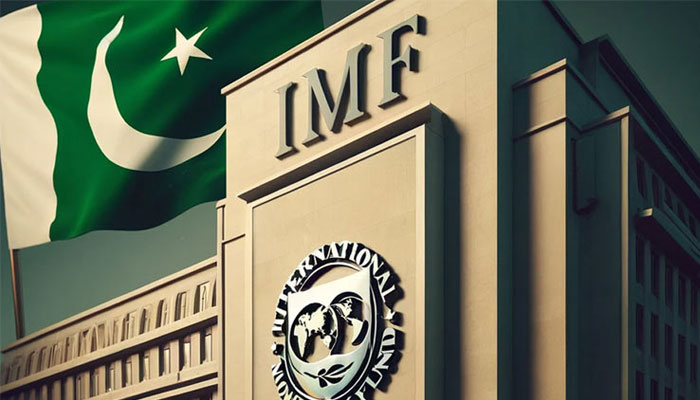ISLAMABAD: The International Monetary Fund (IMF) has revised its GDP growth projection for Pakistan downward to 2.6 percent for the fiscal year 2025, a 0.4 percent decrease from its previous estimate of 3 percent issued in January 2025. This revision was published in the IMF’s latest “World Economic Outlook” (WEO) report titled “A Critical Juncture Amid Policy Shifts”, which underscores rising global economic uncertainty and shifting policy landscapes.
The Fund now anticipates a moderate recovery in Pakistan’s economic activity, projecting GDP growth to reach 3.6 percent in fiscal year 2026. In its earlier forecast, the IMF had estimated 4 percent growth for that year.
Inflation, which reached 23.4 percent in FY2024, is expected to sharply decline to 5.1 percent in FY2025, followed by a slight increase to 7.7 percent in FY2026. The unemployment rate is forecast to fall to 8 percent in 2025 from 8.3 percent in 2024, with a further drop to 7.5 percent in 2026.
Meanwhile, the current account deficit is projected to shrink significantly, standing at just -0.1 percent of GDP in 2025, compared to -0.5 percent in 2024. The general government’s net borrowing is expected to improve as well, dropping to -5.6 percent of GDP in 2025 from -6.8 percent in the current fiscal year.
The IMF’s downward revision mirrors the Asian Development Bank’s (ADB) recent adjustment, which now forecasts Pakistan’s FY2025 GDP growth at 2.5 percent—down from its earlier projection of 3 percent issued in December 2024. The ADB highlighted that Pakistan’s economic outlook remains highly dependent on the successful implementation of ongoing structural reforms.
Adding to the evolving global picture, the World Bank cancelled the scheduled release of its Pakistan Development Outlook report on April 9 to reassess projections following new U.S. tariff announcements, signaling a broader economic recalibration.
Read more: Finance Minister Aurangzeb Engages in Key Meetings at IMF-World Bank Spring Session
Globally, the IMF warned that a complex array of factors—escalating trade tensions, financial market adjustments, and inconsistent policy shifts—pose significant risks. The report states that global growth prospects are dimming due to rising protectionism and reduced international cooperation, which may stall progress toward a more resilient global economy.
Pakistan, already facing a challenging economic environment, is now navigating the dual pressures of domestic reform and external headwinds. Analysts suggest that timely policy execution and international support will be crucial in stabilizing the economy and restoring investor confidence.




Comments are closed, but trackbacks and pingbacks are open.